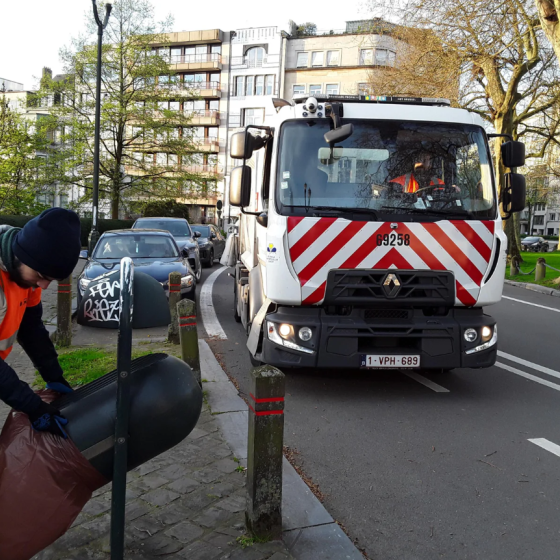In Brussels, fallen leaves aren't just collected with a shovel!

With autumn in full swing, the streets of the Brussels-Capital Region are adorned with a warm gradient of yellow, brown, and orange. However, this picturesque season also brings its share of challenges in terms of urban cleanliness, with fallen leaves covering sidewalks and streets.
Tackling leaf congestion: Bruxelles-Propreté and municipalities.
Brussels-Propreté, the regional agency, deploys a team specifically dedicated to managing fallen leaves. On regional roads, covering 15% of Brussels territory, seven people work daily from mid-October to mid-December. Their mission is to vacuum up the fallen leaves that clutter the roads, using a tractor capable of compacting between 30 and 50 cubic meters of leaves, a crucial task to keep the streets clear.
Brussels-Propreté's intervention takes priority when fallen leaves obstruct tram passages.
For the rest, the responsibility of clearing lies with the municipalities. They mobilize significant resources, especially on critical axes near parks or high-traffic areas, whether for cyclists, pedestrians, or motorists.
Citizen Responsibility and Green Innovations
On sidewalks, the law stipulates that each resident is responsible for maintaining their own space, including picking up fallen leaves. To reduce the use of green bags, several municipalities have adopted creative solutions, such as cages dedicated to depositing leaves. In Jette, this initiative, implemented four years ago with ten cages, has since tripled, now totaling 40 cages scattered throughout the municipality.
Anderlecht has also embraced this approach by installing 69 bins on its territory. This initiative is part of the Carbone project, coordinated by ULB. This project aims to recycle plant waste and transform it into compost, a rich alternative for the soil. In addition to serving local agriculture, the generated compost also nourishes communal plantations. Currently deployed in four Brussels municipalities and at Brussels Mobility, the Carbone project is considering expansion to the regional level after evaluating its effectiveness



